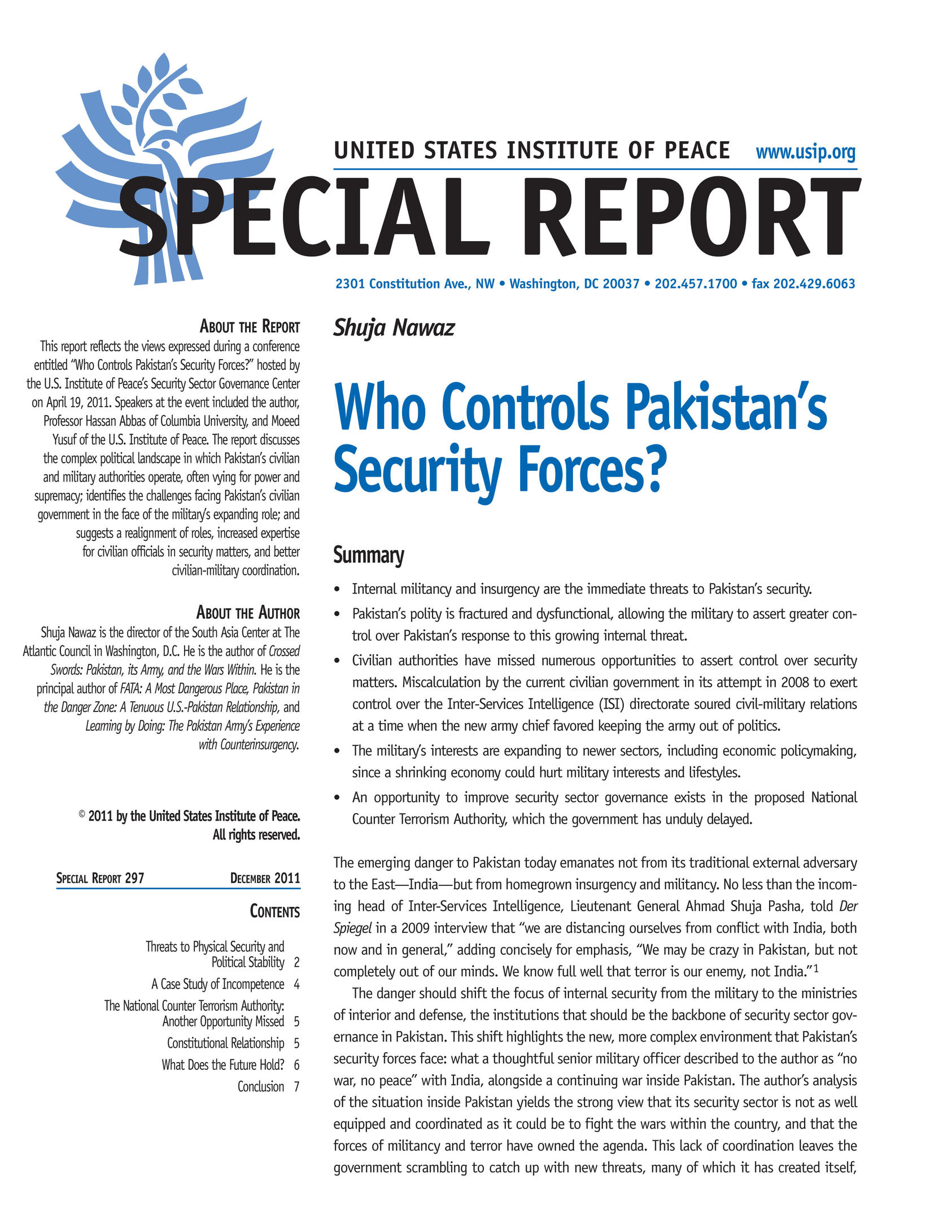Pakistan’s civilian government must gain more security expertise, and strengthen oversight and coordination among its agencies to counter the military’s role in internal counterinsurgency policy.

Summary
- Internal militancy and insurgency are the immediate threats to Pakistan’s security.
- Pakistan’s polity is fractured and dysfunctional, allowing the military to assert greater control over Pakistan’s response to this growing internal threat.
- Civilian authorities have missed numerous opportunities to assert control over security matters. Miscalculation by the current civilian government in its attempt in 2008 to exert control over the Inter-Services Intelligence (ISI) directorate soured civil-military relations at a time when the new army chief favored keeping the army out of politics.
- The military’s interests are expanding to newer sectors, including economic policymaking, since a shrinking economy could hurt military interests and lifestyles.
- An opportunity to improve security sector governance exists in the proposed National Counter Terrorism Authority, which the government has unduly delayed.
About the Report
This report reflects the views expressed during a conference entitled “Who Controls Pakistan’s Security Forces?” hosted by the U.S. Institute of Peace’s Security Sector Governance Center on April 19, 2011. Speakers at the event included the author, Professor Hassan Abbas of Columbia University, and Moeed Yusuf of the U.S. Institute of Peace. The report discusses the complex political landscape in which Pakistan’s civilian and military authorities operate, often vying for power and supremacy; identifies the challenges facing Pakistan’s civilian government in the face of the military’s expanding role; and suggests a realignment of roles, increased expertise for civilian officials in security matters, and better civilian-military coordination.
About the Author
Shuja Nawaz is the director of the South Asia Center at The Atlantic Council in Washington, D.C. He is the author of Crossed Swords: Pakistan, its Army, and the Wars Within. He is the principal author of FATA: A Most Dangerous Place, Pakistan in the Danger Zone: A Tenuous U.S.-Pakistan Relationship, and Learning by Doing: The Pakistan Army’s Experience with Counterinsurgency.